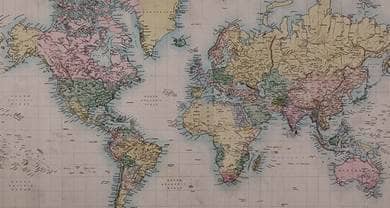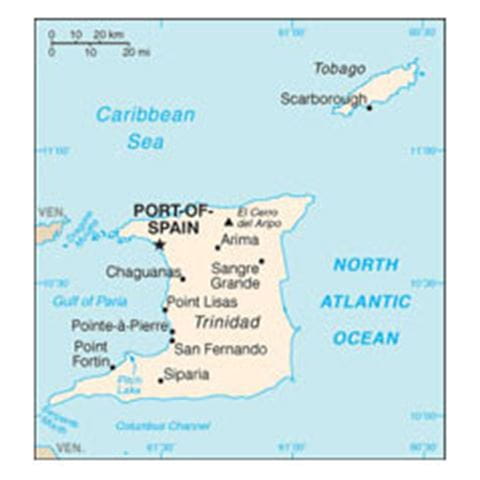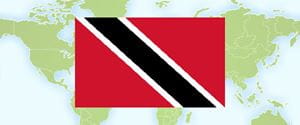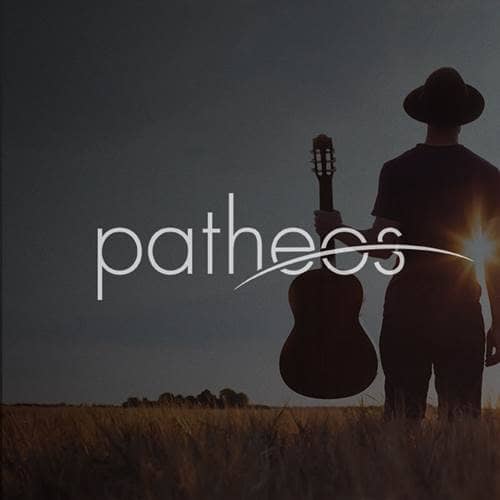- Trending:
- Pope Francis
- |
- Resurrection
- |
- Trump
- |
- Social Justice
- |
- Peace
- |
- Love

RELIGION LIBRARY
Trinidad and Tobago

The country has an area of 1,980 square miles and a population of 1.3 million. Approximately 40 percent of the population is of African descent and 40 percent of East Indian descent. The balance is mostly of European, Syrian, Lebanese, Chinese, or mixed descent.
According to the latest unofficial estimates (2006), 26 percent of the population is Roman Catholic, 24.6 percent Protestant (including 7.8 percent Anglican, 6.8 percent Pentecostal, 4 percent Seventh-day Adventist, 3.3 percent Presbyterian or Congregational, 1.8 percent Baptist, and 0.9 percent Methodist), 1.6 percent members of Jehovah's Witnesses, 22.5 percent Hindu, and 5.8 percent Muslim. Traditional Caribbean religious groups with African roots include the Spiritual Baptists (sometimes called Shouter Baptists), 5.4 percent, and the Orisha, 0.1 percent. Those listed as "other" account for 10.7 percent, which includes numerous small Christian groups as well as Baha'is, Rastafarians, Buddhists, and a very small number of Jews.
The Catholic and Anglican churches noted a decline in church attendance and the number of priests.
Afro-Trinidadians are predominantly Christian, with a small Muslim community, and are concentrated in and around Port of Spain and the east-west corridor of Trinidad. The population of Trinidad's sister island, Tobago, is overwhelmingly of African descent and predominantly Christian. Indo-Trinidadians are primarily concentrated in central and southern Trinidad and are principally divided between the Hindu and Islamic religious groups, along with significant Presbyterian and some Catholic representation.
Ethnic and religious divisions are reflected in political life, with the governing People's National Movement (PNM) party drawing much of its support from Afro-Trinidadians and many Indo-Trinidadians supporting the main opposition party, the United National Congress (UNC), as well as the nonparliamentary opposition Congress of the People party. Religious overtones were sometimes present in the messages and ceremonies of the PNM and the UNC. All parties professed to focus on issues and embrace all potential voters without reference to race, creed, or ethnic origin.
| Population | Population (2009 est.) 1,229,953 |
| Religious Demographics | Roman Catholic 26%, Hindu 22.5%, Anglican 7.8%, Baptist 7.2%, Pentacostal 6.8%, Muslim 5.8%, Seventh Day Adventist 4%, other Christian 5.8%, other 10.8%, unspecified 1.4%, none 1.9% (2000 census) |
| Ethnic Groups | Ethnic Groups Indian (South Asian) 40%, African 37.5%, mixed 20.5%, other 1.2%, unspecified 0.8% (2000 census) |
| Languages | Languages English (official), Caribbean Hindustani (a dialect of Hindi), French, Spanish, Chinese |
| Country Flag |  |










